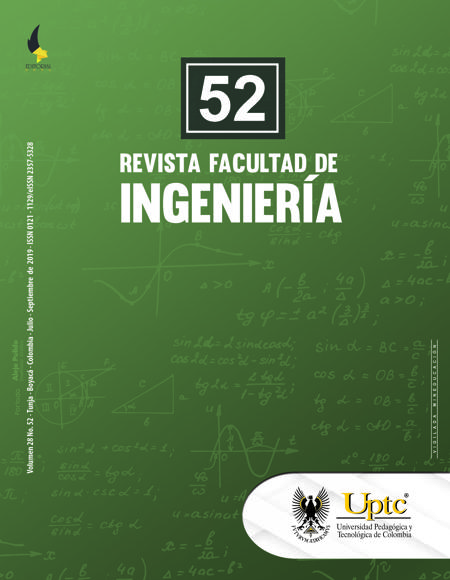Model of Education in Renewable Energies from the Public Engagement and the Energetic Attitude

Abstract
The current energy crisis of the planet is a reality to which we cannot turn a blind eye. Now more than at other times, the energy problems are sharpened, resulting in the production, transformation, distribution and consumption of energy that led to the evident depletion of fossil fuels, environmental problems generated by the exploitation, transportation and use of natural resources. natural resources, climate change, pollution, among others. The work presented here, has the main intention of proposing a conceptual model based on a theoretical construction from a mixed methodology of documentary analysis, from the formulation of three categories: education in renewable energies (EER), public commitment ( CP) and the conceptualization developed by our team on energy attitude (AE); all this added to the necessary interactions that are generated from participatory democracy and community social construction that aims to involve society as the main structure and not as an end.
Secondly, the importance of contributing to the development of the research field of Education in Renewable Energy, due to the discussions that currently arise in the face of the lack of social responsibility in energy and the disinterest in the use of alternative energies as a strategy of reduction of the environmental problems of the context; finally, the need to formulate new ways for the implementation of the use of renewable energies by citizens with the intention of mitigating the problems derived from an excessive development of science and technology that has been problematic in recent decades.
Keywords
education in renewable energy, energy attitude, model, public engagement
References
[1] T. C. Kandpal, and L. Broman, Renewable Energy Education for the Future. Sweden: Strömstad Akademi, 2016.
[2] L. Broman, and A. Ott, “Solar education: the way forward,” Sun at Work in Europe, vol. 6, pp. 24-25, 1988.
[3] H. Garg, and T. Kandpal, “Renewable energy education in developing countries: Indian scenario,” Renewable Energy, Technology and the Environment, vol. 3, p. 2430-2438, 1992.
[4] V. Ballesteros-Ballesteros, "La educación en energías renovables como alternativa de promoción del compromiso público ascendente entre los Indígenas Wayuu en la Alta Guajira," Revista Científica, vol. 2 (Número Especial), pp. 388-397, 2019.
[5] T. Kandpal, and H. Garg, "Renewable Energy Education for Technicians/Mechanics," Renewable Energy, vol. 16 (1), pp. 1220-1224, 1998. https://doi.org/10.1016/S0960-1481(98)00488-1.
[6] H. Garg, and T. Kandpal, "Renewable Energy Education in Developing Countries: Indian Scenario," Renewable Energy, Technology and the Environment, vol. 3, pp. 2430-2438, 1992. https://doi.org/10.1016/B978-0-08-041268-9.50015-8.
[7] M. González, J. Gonçalves, and R. Vasconcelos, "Sustainable Development: Case Study in the Implementation of Renewable Energy in Brazil," Journal of Cleaner Production, n.º 142, pp. 461-475, Jan. 2017. https://doi.org/10.1016/j.jclepro.2016.10.052.
[8] S. Gyamfi, N. Derkyi, E. Asuamah, and I. Aduako, "Chapter 6 – Renewable Energy and Sustainable Development," Sustainable Hydropower in West Africa, pp. 75-94, 2018. https://doi.org/10.1016/B978-0-12-813016-2.00006-X.
[9] M. Carapuço, R. Taborda, M. Silveira, and C. Andrade, "Upstream Public Engagement on Coastal Issues: Audience Response to a Science-Based Exhibition," Ocean & Coastal Management, n.º 144, pp. 83-89, Jul. 2017. https://doi.org/10.1016/j.ocecoaman.2017.04.008.
[10] M. García, and J. A. López-Cerezo, "Pájaros y ornitólogos. Una conversación sobre el pasado, el presente y el futuro de la relación ciencia-filosofía," CTS Revista Iberoamericana de Ciencia, Tecnología y Sociedad, vol. 10 (28), pp. 159-166, 2015.
[11] T. Rogers-Hayden, and N. Pidgeon, "Developments in Nanotechnology Public Engagement in the UK:’Upstream’ towards Sustainability?" Journal of Cleaner Production, vol. 16 (8-9), pp. 1010-1013, May. 2008. https://doi.org/10.1016/j.jclepro.2007.04.013.
[12] A. Saltelli, and S. Funtowicz, "What Is Science’s Crisis Really About?" Futures, vol. 91, pp. 5-11, Aug. 2017. https://doi.org/10.1016/j.futures.2017.05.010.
[13] J. R. Porter, and B. Wollenweber, "Science in an Age of (Non) Reason," In: Progress in Science, Progress in Society, pp. 59–70, 2018. https://doi.org/10.1007/978-3-319-69974-5_6.
[14] A. Robles, J. Solbes Matarredona, J. Cantó Doménech, and L. Lozano, "Actitudes de los estudiantes hacia la ciencia escolar en el primer ciclo de la Enseñanza Secundaria Obligatoria," Revista Electrónica de Enseñanza de las Ciencias, vol. 14 (3), pp. 361-376, 2015.
[15] I. Pozo, Aprendices y maestros, la nueva cultura del aprendizaje. Madrid: Alianza, 2000.
[16] P. Álvarez Suárez, and P. Vega Marcote, "Actitudes ambientales y conductas sostenibles. Implicaciones para la educación ambiental," Revista de Psicodidáctica, n.º 14, pp. 25-38, 2009.
[17] M. Gómez-Vargas, C. Galeano-Higuita, and D. Jaramillo-Muñoz, "El estado del arte: una metodología de investigación," Revista Colombiana de Ciencias Sociales, vol. 6 (2), pp. 423-442, Jul. 2015. https://doi.org/10.21501/22161201.1469.
[18] A. Adúriz-Bravo, and A. Gallego-Torres, "Scientific Research and its Pedagogical Uses," Revista Científica, vol. 2 (25), pp. 160-161, Aug. 2016. https://doi.org/10.14483//udistrital.jour.RC.2016.25.a0.
[19] T. C. Kandpal, and L. Broman, "Renewable Energy Education: A Global Status Review," Renewable and Sustainable Energy Reviews, vol. 34, pp. 300-324, Jun. 2014. https://doi.org/10.1016/j.rser.2014.02.039.
[20] R. Gallego-Badillo, "Un concepto epistemológico de modelo para la didáctica de las ciencias experimentales,” Revista Electrónica de Enseñanza de las Ciencias, vol. 3 (3), pp. 301-319, 2004.
[21] R. Gallego-Torres, and P. González-Crespo, "Metodología de la investigación en ingeniería," Revista Científica, vol. 2 (29), pp. 5-7, 2017. https://doi.org/10.14483/23448350.11959.
[22] M. Fishbein, and I. Ajzen, Belief, Attitude, Intention and Behavior. Boston: Addison Wesley, 1975.